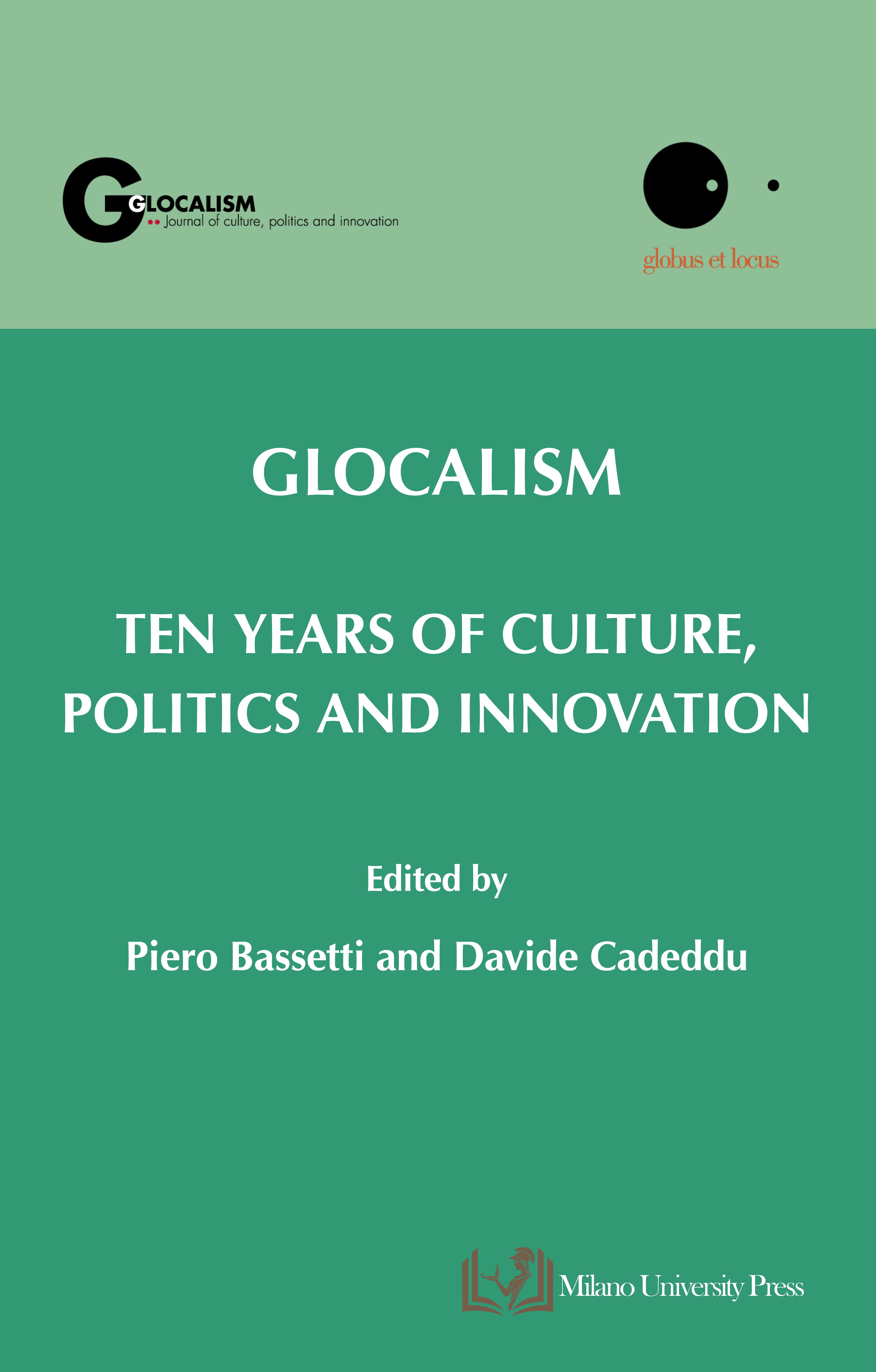Glocalism (ISSN 2283-7949) is a peer-reviewed, open-access and cross-disciplinary journal, established in 2013 and, since 2024, published by Milano University Press on behalf of the association Globus et Locus.
As Glocalism is a six-monthly journal, two issues are published annually.
However, after having gone through the peer review process, and accepted, each article is immediately published online on the journal's "First View" page.
Glocalism does not have article submission charges (ASCs) or article processing charges (APCs). All the articles are published without publication fees and are freely available online. They are published under the liberal Creative Commons Attribution License (Attribution-ShareAlike 4.0 International [CC BY-SA 4.0 Deed]). The author holds the copyright and retains publishing rights without restrictions.
Pre-print and post-print versions can be distributed under the same license.
Glocalism complies with the COPE Core Practices for Journal Publishers. It is identified by an International Standard Serial Number (ISSN). Each article carries a Digital Object Identifier (DOI), which serves as a unique electronic identification tag.
Manuscripts submitted to Glocalism are automatically checked by Crossref Similarity Check, powered by iThenticate, to detect possible plagiarism.
Glocalism’s website images are from Pixabay.com, which allows users to utilise content for free (without having to attribute the author) and to modify or adapt it into new works.
Archiving
The journal has enabled the PKP PN (Public Knowledge Project Preservation Network) plugin, in order to preserve digital contents through LOCKSS (Lots of Copies Keep Stuff Safe) project.











